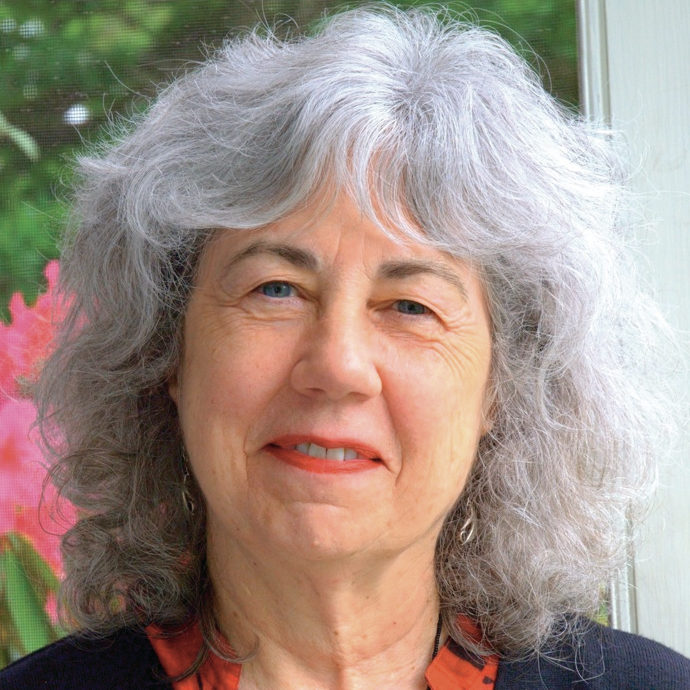A Poetry Ambassador
Open gallery

By Paulann Petersen, Oregon Poet Laureate
To be an ambassador for poetry in Oregon is an honor and privilege. As our state’s current poet laureate, I hold a position held by Bill Stafford for 15 years, and that makes it even more of an honor. From 1975 to 1990, Bill Stafford was Oregon’s poet laureate. And during those years—as I understand it—he tried to resign a couple of times, saying the position should be passed on more frequently to others. Bill remarked that the position was looking more like an aristocracy than a democracy.
He finally did resign in 1990, but his earlier attempts at stepping down were ignored. Oregon’s governor simply refused to acknowledge Bill’s request. Most people are a bit amazed when they hear this story. But not me. I tell those people, “If you were Oregon’s governor, wouldn’t you want Bill Stafford to be your poet laureate for as long as possible? Of course you would!”
And for good reason. He was a nationally and internationally famous poet. He’d won a National Book Award. He’d served as poet laureate of the United States—then called consultant in poetry to the Library of Congress. He was a person of remarkable conscience and conduct, a man whose every word and action bore witness to his unswerving belief in the nonviolent resolution of conflict.
-
 What was my father’s vocation when he taught English at Lewis & Clark from 1948 to 1978? And what has my vocation been, teaching here from 1979 until now? William Stafford taught literature and writing, and I’ve been teaching writing courses of all kinds, from professional writing to stories and songs. Now and then I meet someone who says, “Stafford… yes, I’ve heard of you—but I thought you would be older.” “Ah,” I say, “you mean the old man.”
What was my father’s vocation when he taught English at Lewis & Clark from 1948 to 1978? And what has my vocation been, teaching here from 1979 until now? William Stafford taught literature and writing, and I’ve been teaching writing courses of all kinds, from professional writing to stories and songs. Now and then I meet someone who says, “Stafford… yes, I’ve heard of you—but I thought you would be older.” “Ah,” I say, “you mean the old man.” -
 In our conversations and correspondence over nearly 30 years, I noticed early on that two of William Stafford’s favorite words were converge and intersect—verbs of motion indicating bodies approaching one another, and perhaps connecting. Does this sound, maybe, like the setup of some of his greatest poems?
In our conversations and correspondence over nearly 30 years, I noticed early on that two of William Stafford’s favorite words were converge and intersect—verbs of motion indicating bodies approaching one another, and perhaps connecting. Does this sound, maybe, like the setup of some of his greatest poems? -
 I met Bill Stafford in September 1967.
I met Bill Stafford in September 1967.
But something else made him an especially beloved and valued Oregon poet laureate. His unpretentiousness. His love of libraries and learning and out-of-the-way places. His ability to meet each person as a “separate luminous being.” His profound attention to “little things.” His belief that poetry is as near to each of us as a piece of paper and pencil.
Bill’s easy, hospitable way with poetry had an early and indelible influence on me. I encountered him at workshops and readings in Oregon and across the river in Washington. I encountered his poems everywhere. I read the prose books he’d written about the writing life. Bit by bit, through Bill’s poems and teaching, through my own experiences as a public high school teacher, through the decades I spent reading and writing poetry, through the years I spent giving workshops and readings, years of meeting other poets doing the same, I learned this truth about the nature of poetry and poem writing:
Poetry is not the domain of just a few. It doesn’t belong to merely the select, the elect. Poetry belongs to all of us. Poetry is anyone’s domain. It’s as natural and accessible as heartbeat and breath. Writing poetry requires nothing more than a love of words and a willingness to let your pen move across a page, following wherever language and memory and imagination take you.
Poetry speaks the language of us at our best. A poem comes from that place in us where we are the most creative, attentive, responsive. A poem speaks to that place in us where we are the most authentic. Poetry is the language of our best selves.
More L&C Magazine Stories
Lewis & Clark Magazine is located in McAfee on the Undergraduate Campus.
MSC: 19
email magazine@lclark.edu
voice 503-768-7970
fax 503-768-7969
The L&C Magazine staff welcomes letters and emails from readers about topics covered in the magazine. Correspondence must include your name and location and may be edited.
Lewis & Clark Magazine
Lewis & Clark
615 S. Palatine Hill Road MSC 19
Portland OR 97219

